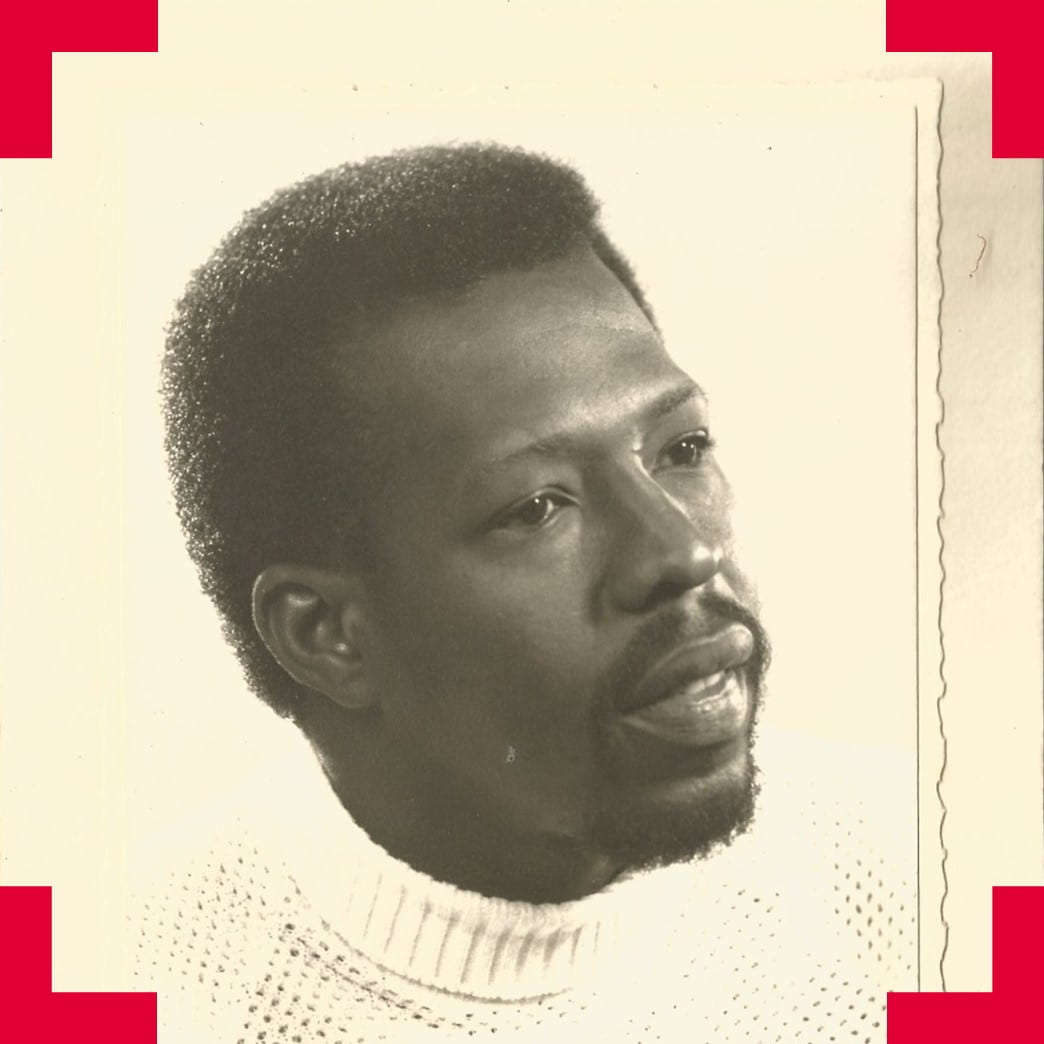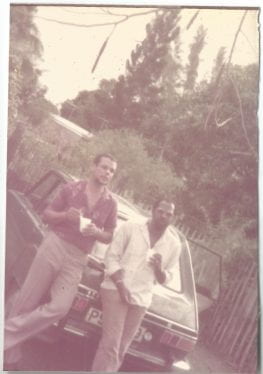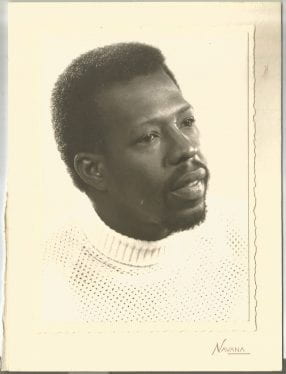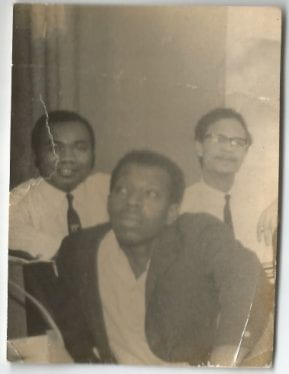Ken Pryce: His life, his academic contribution and his relevance today: from a historian’s perspective
Madge Dresser, Endless Pressure 50 Years On

I’ve always regretted not meeting Ken Pryce when he was in Bristol. He left in 1973 and I had only just arrived in the city in 1972. But his book Endless Pressure first published in 1979 was to be a great influence on me, so I was delighted when Jo Kontis came up with the idea of revisting his work including the PhD dissertation on which the book was based. Her aim of finding out what had since happened to some of the people who had featured in his original research seemed particularly important as many were elderly and their experience would soon be lost to posterity.

The project was also particularly timely given the present focus on racial injustice and the lack of diversity at institutions like the University of Bristol. What was life like for people from African-Caribbean backgrounds in Bristol (and the UK) in the post-war era and how have things changed since then? What can Pryce’s experience as a Black academic from Jamaica tell us about both mainland Britain and its former colonies? It also raises other questions which are preoccupying us all. These include issues of identity and the relationship between academia and the public. But the project also makes us reconsider issues around who is best placed to capture marginalized people’s experience and how that can best be done.
Though I never met Ken, I came to know many people whose lives he had touched, from some of the people he interviewed for his study to others outside St. Pauls. Given the anonymity which respondents were supposed to have enjoyed, I won’t list the names of the people whom he interviewed for the study whom I knew, but only those at the University of Bristol and elsewhere in Bristol. These included his supervisor Michael Banton, friends and supporters such as Professor Steve Fenton, and Angela Rodaway. What follows is a personal assessment of Ken Pryce’s life, approach and contribution, and is based both on his work and on conversations with some of the people (including friends and family members in the Caribbean) who knew him personally. I write both as a historian with an interest in oral history and the history of marginalized groups and as someone long engaged with examining issues of racism, ethnicity, gender and social justice in the public arena.
Who was Ken Pryce?

Ken Pryce (1942-1987) was a Jamaican criminologist who is most remembered for both his ethnographic investigation of the African-Caribbean diaspora in Bristol in the early 1970s and for his untimely and mysterious death in Jamaica whilst investigating international drug networks in the Caribbean. At the time of his death he was an academic at the University of the West Indies in St. Augustines, Trinidad. He was born in Franklyn Town Kingston. He always used to say he was a born Kingstonian but his family, though respectable and aspiring, was not a member of the Jamaican elite whose privilege, colourism and elitism he was forthright in decrying.
Bright and aspiring, Pryce was able to get into Gaynstead High School in Kingston at a time when secondary school facilities in Jamaica were limited. He left school at 18 to earn money taking various administrative posts for 3 years before leaving for Britain in 1963.[i] Once in England he worked at various jobs and studied part-time at a technical college to get his A levels. This enabled him to get a grant from the Greater London Council to study at University of York where he achieved a 2.1 in the Social Sciences and where he first met Laurie Taylor the BBC broadcaster and sociologist who was his tutor. Whilst at York, Ken was the chairman of the newly formed ‘3rd World Society for Overseas students’.
He then came to the University of Bristol where he did his Ph.D under Professor Michael Banton. He found the academics under whom he studied encouraging, but was caught between his own interests and political orientation and those of his supervisor and had to negotiate a way in which he could satisfy both. He sought the support of another Bristol academic, Huw Benyon, for ways to do this. According to Benyon, ‘He was very committed to the work that he had done and to the people of St Pauls and wanted to produce a completely full and “honest” account of daily life there. He was nervous over the conventions of a PhD thesis and how best to develop a text that drew on his field work notes and interviews.’
Finances were tight and throughout his academic career in Britain, he had to supplement his income with other work including doing stints in London as dockworker. Strapped for cash, Pryce stayed for a time rent free with the English community worker and campaigner Angela Rodaway in her house in Windsor Terrace in Clifton who introduced him to many people in St. Pauls where she worked. He owed much to Rodaway but it is telling that when he thanked her in his dissertation he did so for her ‘domestic support’, which reveals some of the gender bias in his own thinking. As one of the few Black people at the university he felt the social isolation and preferred to be in St. Pauls where he socialised with people living there. These included many of the people who were the subject of his investigations, not all of whom were aware of his project. Though identifying strongly as a Jamaican , his friends also included white English intellectuals and activists whose political values he shared, including Steve Fenton, who was then a young lecturer at the University of Bristol. Pryce moved into St. Paul’s briefly but reportedly had to go into hiding at one point when some of the people involved in the local drug culture realised he was a researcher. He had to leave Bristol before finishing his thesis in order to earn money as a community worker in London before he was able to return to the Caribbean in 1976 to take up a post at the University of the West Indies.
Ken Pryce and his Bristol writing
Members of the public who can now have free access to his dissertation through this project can find out so much about the lives and experiences of Black people in the British diaspora (as well as in the Caribbean). The thesis and the book also contain good accounts of the Bristol Bus Boycott and the earlier Windrush generation.
In some ways his contribution and analysis are dated. His analysis of gender relations and women’s role in the community needed recasting, and his friend Professor Rhoda Reddock says this was something she did call him on at the time and says it was to his credit that he did get to grips with and address this in his subsequent career.
Ethnographic studies (given the field’s historical associations with Western colonization) are rightly subject to particular critical scrutiny. Ken Pryce’s categorization of the mainly Jamaican cohort he was studying was particularly controversial. His identification of the people studied into various ‘life styles’ or subcultures (the saints, respectable proletarians, mainliners, in betweeners, teeny boppers and hustlers) was made even more contentious by placing these groups along a continuum of those who those who were law abiding and those who weren’t. As he wrote in his thesis (Volume 1, pages 2-6):
“These two main directions of behaviour are termed “life-orientations”. They are the Expressive-Disreputable orientation and the Stable-law-abiding orientation. I believe that the fundamental distinction between the people who follow in these two primary walks of life is between those who work and those who don’t work or, to put it another way, those who work and those who “hustle”.”

Pryce was criticized by some social scientists for the covert nature of his ethnographic research which did raise ethical issues. But as Jo Kontis has pointed out, he did operate in the days before ethics committees and the routine use of consent forms guided the work of postgraduate students. At the time, however, some people covered in the study felt betrayed and exposed when his book was published both because some of them hadn’t realized they were the subject of investigation and also because their personal identities were recognizable despite Pryce’s attempts to anonymize his findings. This made them very resistant to cooperating with further sociological investigations into their community. But Pryce was also slated for his ‘unwitting perpetuation of negative cultural stereotypes and the effect his research had on the researched community.’ For portraying in such detail the attitudes and transgressive behaviour of some sections of the African Caribbean population, Pryce is charged by some with giving justification to the hard policing tactics subsequently employed in Bristol which led up to the uprising in 1980. But this is based on a misreading of Pryce’s analysis.
It’s certainly the case that in the 1960s and beyond, most white Bristolians hostile to or wary of New Commonwealth immigration identified St. Pauls and African-Caribbean people with the very criminal subculture that Pryce documents. But unlike them, Pryce makes the point that these groups are outnumbered by those who are hard working and law-abiding. Also, Pryce historicizes and explains with reference to the history of slavery, colonization and neo-colonization why a hustler orientation has emerged. He treats those inclining to it as individuals each with their own life story and rationales for thinking or behaving in they way they did. To my mind, this honesty is prescient in so many ways and has a relevance for the way we look at issues like school exclusion and policing today. Pryce is resolute in calling out white racism, but sees it as part and parcel of a wider set of historical factors which show the inadequacy of the simple binary perspectives we get on Twitter. For example, his portrayal of the conflict between British-born teenyboppers and their law-abiding parents anticipates issues around family dynamics, mental health and inter-generational conflict which are re-emerging today post Brexit and post Covid for all sections of the population, but which are differently experienced by people of colour and particularly by those new incomers from global south countries such as Somalia. The groundbreaking documentation of life in St. Paul’s from the 1980s that has been produced by Clive Smith, another member of our project team, does not shy away from some of the complexities of the issues which Pryce first raised.
Pryce’s point about the tendency of white intellectuals and other progressives to romanticize African-Caribbean communities in the diaspora is something worth considering today, particularly in relation to issues around policing, exclusion, addiction and gang culture and the way they are discussed in the public arena. Stuart Hall and others point to the fact that Pryce’s investigation not only coincided in time with their own investigation of Black youth and crime in Britain in Policing the Crisis: Mugging, the State and Law and Order first published a year before Endless Pressure but also reinforced their own their own critique of the way Black criminality was and is understood.
Concluding thoughts
It’s beyond my competence to assess Pryce’s subsequent contribution to criminology, but he has been called the Caribbean’s first criminologist and insisted that
‘“…[we] need to examine the reality of crime from a critical standpoint in the context of the Region’s history of capitalist repression and exploitation, and in terms of the Caribbean’s structural heritage of black working class styles of protest and modes of response to oppression through slavery down to the present stage of neo-colonialism.’ (The Daily Gleaner, 23 July 1969)
The fact that he promoted a criminology which saw criminal acts from the standpoint of local conditions and not in terms of the frames of reference and purely bourgeois assumptions of the Establishment and the local metropolitan-orientated ruling elite demonstrates both the evolution of his views since his departure from the UK (he became increasingly influenced by Pan-Africanist views) and also his continuing insistence on looking at local circumstances before simply assimilating them to over-arching theoretical perspectives. His looking local and thinking global is a perspective that would serve us all well. The sociologist Robin Cohen who was an associate of Stuart Hall in the early 1970s and who met Ken Pryce in Trinidad in 1977, testified in a personal email that: ‘There is little I would suggest he would could do differently if he were with us today. Of course, black British society and British society in general has moved on, so some of his categories would need refashioning, but his method and scholarly integrity remain.’
Find out more about Endless Pressure 50 Years On: Revisiting Ken Pryce’s Study of West Indian Life-Styles in Bristol

